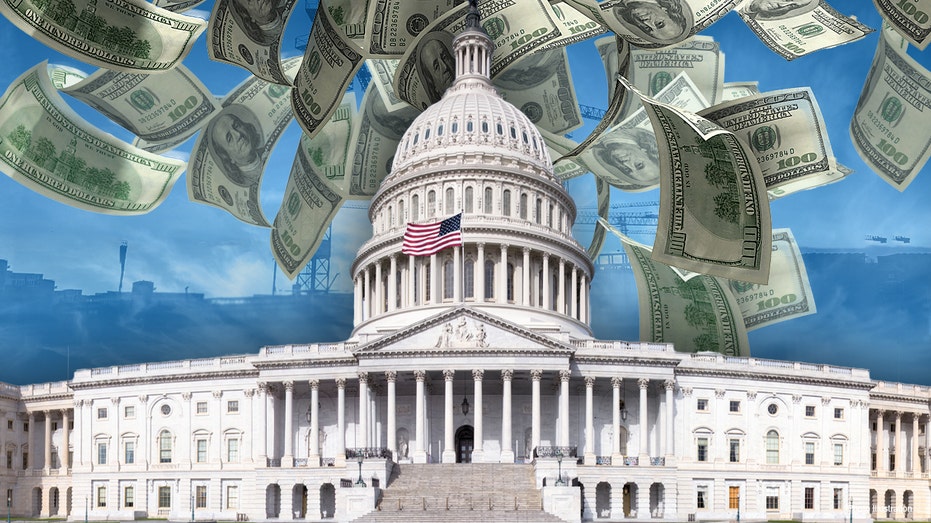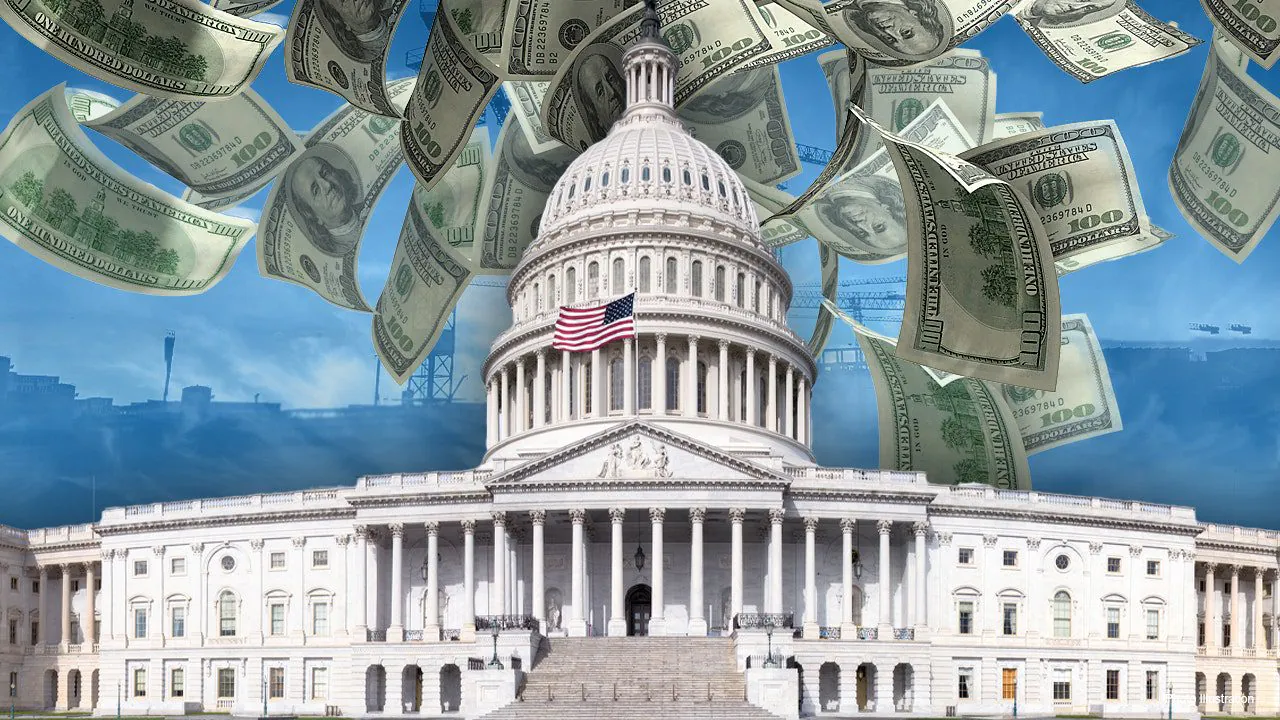[ad_1]
Lyn Alden Investment Strategy founder Lyn Alden explains why shortages are so persistent on Making Money.
That of the federal government budget deficit reached nearly $2 trillion last year and is expected to rise further in coming years, with experts warning that the government must rein in deficits to ensure fiscal stability.
The nonpartisan Congressional Budget Office (CBO) released its preliminary estimated deficit for fiscal year 2024, which was $1.834 trillion. The fiscal year 2024 deficit was $139 billion larger than the previous fiscal year’s actual deficit, as spending growth overshadowed the increase in tax revenues.
Based on the preliminary deficit estimate for fiscal year 2024, this was the third-largest budget deficit in US history. It trails only the $3.132 trillion deficit in FY 2020 and the $2.775 trillion deficit in FY 2021, both of which were incurred amid increased federal spending on pandemic relief programs.
The growth of the deficit comes in the middle of the budget deficit rising federal spending on entitlement programs such as Social Security and Medicare amid the aging U.S. population, as well as on higher interest payments on debt due to higher interest rates and a growing national debt.
NATIONAL DEBT TRACKER: US TAXPAYERS (U) ARE NOW ON THE HOOK FOR $35,751,271,808,625.45 AS OF 10/16/24

Federal budget deficits are expected to continue to grow in the coming years unless federal lawmakers take action. (iStock / iStock)
According to the CBO estimate, spending on net interest payments on the debt increased by $240 billion in fiscal year 2024 compared to last year. Social security spending increased by $107 billion and Medicare increased by $25 billion from a year ago.
“As one fiscal year ends and another begins again, it is clear that we still have a lot of course correction to make,” said Maya MacGuineas, chair of the nonpartisan Committee for a Responsible Federal Budget (CRFB). “We are now borrowing $5 billion a day, while interest payments are skyrocketing.”
WHAT ARE THE BIGGEST FISCAL DEFICITS IN US HISTORY?
“At almost $2 trillion, last year’s deficit was almost gone double pre-pandemic levels. We face huge headwinds, with debt reaching a record share of the economy by 2027; and we don’t even have a plan to address our budget problems,” she said.
“As rising interest costs and our structural deficits push the national debt ever higher, it is clear that this is a budget election with enormous implications for America’s future,” said Michael Peterson, CEO of the nonpartisan Peter G. Peterson Foundation.
The shortages are expected to increase further in the coming years. The CBO projected that deficits starting in FY 2030 are on track to exceed $2 trillion per year and will reach nearly $2.9 trillion just four years later.
ECONOMIST OFFERS SECOND ACTUAL PLAN TO AVOID FINANCIAL CRISIS BY STABILIZING AMERICA’S RISING NATIONAL DEBT
The economic plans released so far by the two leading presidential candidates, Vice President Harris and former President Trump, are expected to increase the deficit at a faster pace and have opted not to address the looming insolvency of a key Social Security trust fund in the coming decade.
A CRFB analysis found that Harris’ economic plan would likely lead to $3.5 trillion in deficit increases from 2026 to 2035. Trump’s plan would increase deficits by $7.5 trillion over that period.
“We cannot afford to continue borrowing at this rate indefinitely. It’s long past time for policymakers to stop adding growing national debt and instead agree on a path forward that puts debt on a downward, sustainable path for future generations,” MacGuineas explains.
GET FOX BUSINESS ON THE GO BY CLICKING HERE
“The leaders we elect this fall will face a series of crucial deadlines, including the return of the debt ceiling, the expiration of trillions in debt, tax cutsand automatic cuts to social security are looming ever closer. Voters are taking notice and want to hear about fiscal solutions, but unfortunately we have not yet seen adequate plans from any of the presidential candidates,” Peterson added.

